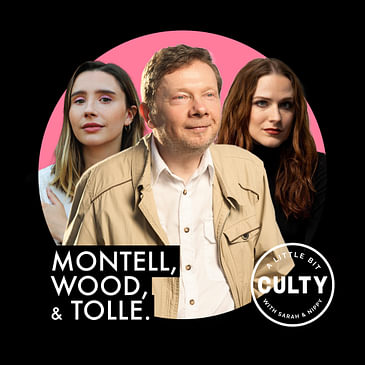Today’s episode is sponsored by BetterHelp.
Hey everybody, hope your summer was frickin’ great. We’re working on all-new episodes of A Little Bit Culty, coming in hot ANY DAY now, but for this sultry, late summery time we wanted to revisit our cool, culty archives and put together some mashups of our greatest hits for you. We’ll be back soon with all new cult-busting content, and we’re dropping fresh new episodes every week on Patreon in the meantime. Until we meet in the feed again - here’s our first Summer Remix featuring some of our PERSONAL favorite interviews of all time.So let’s do this shall we?
——
If you’re a cult member, you hate them… but if you’re a fan of A Little Bit Culty, you can’thelp but love the three cult-busting guests we are featuring on today’s episode.First up is the Amanda Montell, a writer, language scholar, and the author of two critically acclaimed books: Cultish: The Language of Fanaticism and Wordslut: A Feminist Guide to Taking Back the English Language (HarperWave). Her books have earned praise from The New York Times, The Washington Post, The Atlantic, and others, and Amanda is currently developing Wordslut for television with FX Studios. Amanda's writing has been featured in Marie Claire, Cosmopolitan, Teen Vogue, Refinery29, and Who What Wear, where she formerly served as the Features & Beauty Editor. She is also the creator and co-host of the comedy-cult podcast, Sounds Like A Cult.
Next is actor, activist, and epic badass Evan Rachel Wood whose impressive AF resume also includes: “Most likely to be hideously trolled by the Marilyn Manson stans of the world.” If you’ve seen the HBO Max mini-series Phoenix Rising which chronicles her fight to break away from the rocker formerly known as Brian Warner, you’ve already seen the culty wafting offa that dude like a bad cologne. We caught up with Evan to talk about her journey to hell and back, how she’s doing now, and why she won’t ever stop blowing the whistle on complete fuckery. As a note to our listeners, and our lawyers, Mr. Manson has repeatedly denied multiple sexual assault allegations from multiple women and is currently suing Evan for defamation over the accusations, claiming it’s all part of an elaborate organized attack. Please note that conversations like the one you’re about to hear can be traumatizing for abuse survivors. Listen to this episode with caution, and if you or anyone you know needs support, see our site for free resources. Also please note that we love Evan Rachel Wood and believe her without reservation. Sorry, not fucking sorry Manson Stans.
Finally - and perhaps most controversially – is Ekhart Tolle – who is widely recognized as one of the most inspiring spiritual leaders in the world. His international bestsellers have been translated into 52 languages. And we can’t verify this, but he might be one of the MOST quoted and/or misquoted contemporary spiritual gurus ever. Also, for the record, our listeners had a LOVE/HATE reaction to this guest. Can’t please everybody!
Let us know what you think. Also…
Let it be known far and wide, loud and clear that…
The views and opinions expressed on A Little Bit Culty do not necessarily reflect the official policy or position of the podcast. Any content provided by our guests, bloggers, sponsors or authors are of their opinion and are not intended to malign any religion, group, club, organization, business individual, anyone or anything. Nobody’s mad at you, just don’t be a culty fuckwad.
Other Links:
Check out our lovely sponsors
Join ‘A Little Bit Culty’ on Patreon
Get poppin’ fresh ALBC Swag
Support the pod and smash this link
Cult awareness and recovery resources
CREDITS:
Executive Producers: Sarah Edmondson & Anthony Ames
Production Partner: Citizens of Sound
Producer: Will Retherford
Senior Producer: Jess Tardy
Writer: Holly Zadra
Theme Song: “Cultivated” by Jon Bryant co-written with Nygel Asselin

